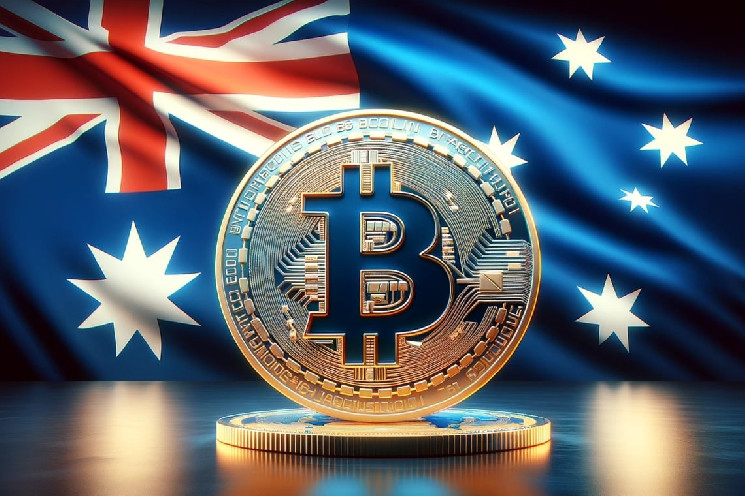Today, Bloomberg reported that Australia would be ready to approve a new wave of spot Bitcoin ETF launches by the end of 2024.
Australia is set for a wave of Bitcoin ETF launches this year, following in the footsteps of the US and Hong Kong, as issuers like VanEck and BetaShares line up for listings https://t.co/mDOXF5hQxY
— Bloomberg (@business) April 28, 2024
It is not a certain news, but a rumor, which however is in line with what is happening in other countries.
Summary
Australia: The AXS Stock Exchange is ready to welcome Bitcoin ETFs
The Australian Securities Exchange (ASX) is the stock exchange of Sydney, and the most important in all of Australia.
ASX is a public company, and the stock exchange it operates should not be confused with the Sydney Stock Exchange, which is a separate entity.
It is worth noting that the Australian foreign exchange market is the seventh largest in the world in terms of turnover, and the Australian dollar is the fifth most traded currency in the world.
Nowadays ASX records a daily trading volume of over 4.6 billion Australian dollars (approximately 3 trillion USD), with more than 2,000 listed securities and a market capitalization of around 1.6 trillion Australian dollars. In fact, it is the largest stock exchange in the entire southern hemisphere.
Despite these numbers, however, it is not among the top ten stock exchanges in the world by market capitalization, surpassed for example even by those of Hong Kong, London, Frankfurt, and Toronto. In fact, in terms of market capitalization, it is also surpassed by that of Mumbai, in India, by that of Seoul, in South Korea, and by the Swedish one in Stockholm.
Instead, for monthly trading volumes it is higher even than that of Toronto, Canada.
It is worth noting that in all of Australia there are only 27 million people, which is less than the 38 million people living in Canada.
However, the country is in 14th place in terms of GDP, ahead of much more populous nations such as Turkey, and more or less on par with South Korea, which has a population of over 50 million.
Bitcoin ETFs
At the moment, there are no Bitcoin or Ethereum spot ETFs listed on the ASX.
Bloomberg however reports that sources familiar with the matter claim that it will approve and launch some before the end of this year.
Indeed, there are already some issuance requests in this regard that have been submitted in recent months, and are therefore awaiting approval. One of the applicants is VanEck, which has already launched a similar product on the Chicago Cboe stock exchange.
It is worth noting that tomorrow BTC and ETH spot ETFs are expected to debut on the Hong Kong stock exchange, with which ASX partly competes in the Southeast Asian and Oceania market (the so-called APAC, Asia-Pacific).
It is therefore possible that Hong Kong’s acceleration in this direction has pushed the Sydney stock exchange to follow the trend in this direction, after the launch of the Bitcoin spot ETF on the US stock exchanges was a great success.
The impact on the price of Bitcoin of the approval of ETFs in Australia
Just like the impact on BTC price from the launch of ETFs in Australia could be limited.
The key point is the size of the target audience for these initiatives, and in particular the capital they will actually be able to attract.
For example, Chinese living in mainland China will not be able to access BTC spot ETFs listed on the Hong Kong Stock Exchange, which will therefore be only available to residents of Hong Kong or local funds.
Something similar may also apply to the Sydney Stock Exchange, which is mainly frequented by Australians.
Actually, Australians are definitely more numerous than the inhabitants of Hong Kong, but with a GDP equal to less than a tenth of that of the USA, and about a tenth of that of China, it is difficult for them to play a significant role in this market.
However, if they were to attract a volume of capital equal to about one twentieth of that attracted by US stock exchanges on ETFs on Bitcoin, they could still manage to have some minimal impact on the price, but not significant.
In the rest of the world
At this point, however, the discussion shifts from Australia and Hong Kong to the rest of the world.
Indeed, the USA alone produce “only” about 25% of the world’s GDP, which means that three quarters of the world’s GDP are produced elsewhere.
Approximately 16% of the world’s GDP is produced in China, and about 15% in the European Union.
In the EU, financial products similar to spot Bitcoin ETFs are already available, but not in China, as those that will be launched tomorrow in Hong Kong are only available to local residents.
These countries must then be added at least Japan and India, which together produce about 7% of the world’s GDP.
The fact is that to date there are still not many financial markets overall where products similar to spot Bitcoin ETFs are present, although among the 12 largest stock exchanges in the world by trading volumes there are only 4 on which they are not available, excluding Hong Kong which will have them starting tomorrow.
The difference from this point of view will be mainly made by the two bags that the Chinese in mainland use, namely those of Shanghai and Shenzhen, although it will probably be necessary to wait for the outcome of the “test” in Hong Kong to know if they will be launched there sooner or later.
However, if Bitcoin ETFs were to achieve a similar success in Australia and Hong Kong in proportion to that obtained in the USA, it seems unlikely that the Shanghai and Shenzhen stock exchanges can do without them for much longer.
 en.cryptonomist.ch
en.cryptonomist.ch
